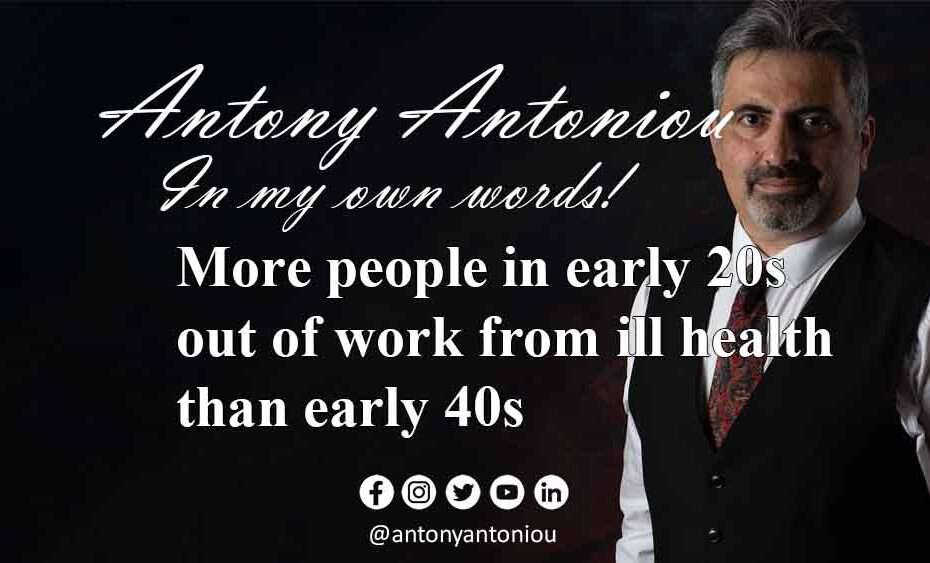More people in early 20s out of work from ill health than early 40s
The Impact of Mental Health on Employment: A Closer Look at Young Adults
Introduction
A recent study conducted by the Resolution Foundation, with funding from the Health Foundation, sheds light on the concerning correlation between poor mental health and unemployment among young adults in Britain. The research highlights the need for urgent action to address the mental health crisis, particularly among those in their early 20s. This article delves into the key findings of the study, emphasizing the impact on education, employment, and the overall well-being of the younger demographic.
Rising Mental Health Issues among Young People
Official data reveals a significant rise in the number of young people experiencing poor mental health. In the year 2021/22, 34% of individuals aged 18 to 24 reported symptoms of mental disorders such as depression, anxiety, or bipolar disorder. This marks a considerable increase from the 24% reported in 2000. Notably, young women are disproportionately affected, being one-and-a-half times more likely to experience poor mental health compared to their male counterparts (41% vs. 26%).
Education Challenges and Workforce Impact
The study draws attention to the detrimental effects of mental health issues on education and subsequent employment outcomes. Young individuals with mental health problems often face barriers to obtaining a good education, leading to a higher likelihood of ending up unemployed or in low-paid jobs. Specifically, 79% of 18 to 24-year-olds “workless” due to ill health possess qualifications at GCSE level or below, in contrast to 34% of the overall population in that age group.
School Attendance and Academic Performance
The impact of poor mental health is also evident in school attendance and academic achievement. In the autumn term of 2023, 12% of 11 to 16-year-olds with mental health issues missed more than 15 days of school, compared to just 2% of their healthier peers. Additionally, those experiencing mental health challenges between the ages of 11 and 14 are three times more likely not to pass five GCSEs, including maths and English, compared to their mentally healthier counterparts.
Employment Disparities and Low-Paid Jobs
The study underscores the connection between mental health problems and unemployment among young adults. Between 2018 and 2022, 21% of 18 to 24-year-olds with mental health issues were not in work, compared to 13% without such issues. Moreover, those with mental health problems have consistently been more likely to engage in low-paid work over the past decade. In 2022, 40% of employed 18 to 24-year-olds with mental health problems held low-paid jobs, compared to 35% of their healthier peers.
Policy Recommendations and Conclusion
The study concludes by advocating for targeted efforts to address the mental health crisis among lower-qualified young people. Recommendations include providing greater mental health support in colleges and sixth forms and ensuring measures are in place to prevent individuals from leaving compulsory education with low qualification levels. The Resolution Foundation urges policymakers to recognize the economic consequences of poor mental health, particularly among non-graduates, and calls for comprehensive support services to bridge the existing gaps.
Louise Murphy, senior economist at the Resolution Foundation, emphasizes the need for better support services in underserved colleges and improved provisions for exam resits. Jo Bibby, director of health at the Health Foundation, warns of the potential creation of a ‘lost generation’ if cross-government action is not taken promptly.
In response, a Government spokesman highlights the £2.5 billion Back to Work Plan, aimed at assisting one million people in finding employment. The plan includes tailored support for young people, acknowledging the importance of good employment and education in supporting mental health. The government affirms its commitment to mental health, citing record levels of support, including £16 billion allocated last year, with £1 billion specifically designated for children and young people.

